Bacre Ndiaye, Senegalese Human Rights lawyer
Bacre Ndiaye is a Senegalese lawyer specialized in human rights with over 30 years of rooted field experience. He was the first African member to be elected to the International Executive Committee of Amnesty International in 1985 and has been a Board member of the Martin Ennals Foundation since 2019.
He shares his insights into the challenges human rights defenders are facing due to the Covid-19 pandemic and discusses the milestones of his career in the human rights sector.
2020 has been a year of global change so far. How do you think COVID-19 impacts the work of human rights defenders on the ground?
The Covid 19 pandemic – representing a complex challenge – shows the fragility of the international system. This crisis highlights that the right to health is fundamental. Health care systems should be accessible to all, without conditions and regardless of borders.
The pandemic is also a threat to fundamental freedoms, as emergency laws to curb Covid-19 are being used for repressive purposes. In my country, I’ve seen security forces humiliate young people who have broken the curfew. This echoes what happened to George Floyd and brings to light the existing discrimination against minorities and the stigmatization of migrants or asylum seekers in the fight against the pandemic. People in the informal sector are dependent on day to day survival tactics and often have no savings or social security. Declaring a lockdown deprives those people of their only source of income since going to work has become impossible. Last but not least, women suffer more than men in these times, with less access to information, education and transportation.
In Africa, Covid-19 occurred during a particular year, marked by a fierce fight against terrorism in many countries, including Nigeria, Mali and Burkina Faso. Other issues such as corruption and electoral violence were overshadowed by the pandemic.
This affects human rights defenders as well. As a result of the pandemic, they became less visible even though many of them continued to work, while trying to avoid the virus at the same time. We need to pay special attention to them, support their work and ensure they can get access to health care.
In this context, what is your message to human rights defenders across the globe?
Human rights defenders must ensure their fight stays in the limelight despite the pandemic. My advice to them is to engage on social media and to include the pandemic in their work. We can no longer travel or meet, that’s a fact, but we must keep in touch! Initiatives like the Martin Ennals Award are here to help them.
What have been milestones of your career in the Human Rights sector?
I was UN Special Rapporteur on summary executions for six years and Truth and Justice Commissioner in Haiti, before working for 16 years as Director of the Human Rights Council and Special Procedures Division at the OHCHR (United Nations Human Rights) in New York and Geneva.
In 2007, I became Deputy Special Representative for the Democratic Republic of the Congo (DRC). Since my return to Senegal in 2014, I have been UN Secretary General Investigator on a peacekeeping mission and UNDP (United Nations Development Programme) consultant on the UPR (Universal Periodic Review) implementation.
For the last 3 years, I have been President of the team of the human rights council experts on the situation in Kasaï (DRC). During my first visit in DRC with Amnesty International, at the end of the 1980, egregious human rights violations were happening in DRC. They continued after the colonial period and reached a peak after the 1994 genocide and mass atrocities in Rwanda with millions of victims, but little international attention. Hundreds of rapes, beheadings and attacks took place between 2016 and 2018, involving young people who believed to be invulnerable. People were displaced, and women were led to slavery in the Kasaï, with over 5000 people killed. After a thorough investigation, we recommended to accompany and monitor the DRC in fighting impunity and providing reparations to victims, mainly through the military justice system. We also supported the process of reconciliation, transitional justice and prevention of repetition.
Who is Martin Ennals for you? How do you feel related to him?
The first time I read about Martin Ennals, I was still a student. My uncle Ibrahima Boye, the first African Sub-Saharan Chair of the UN Human Rights Commission, knew Martin and was always referring to him as a friend and tireless human rights activist. I finally got to meet him in person when I joined Amnesty International.
Why did you become a Board member of the Martin Ennals Foundation?
My former colleagues at Amnesty and the OHCHR have told me great things about the Martin Ennals Foundation. Given my human rights background, they strongly encouraged me to join its Board. I have been a proud member of the Board since 2019 and believe the Award plays a unique role in allowing human rights defenders to remain human rights defenders.
The last good movie he saw
I was approached by a Senegalese filmmaker, Cecile Sow, who has produced a film about the history of the Senegalese Army. I became an advisor to the production, sharing parts of my family’s history, my passion for history in general and human rights investigations in countries at war and those marked by civil unrest around the world.
This was an incredible experience!
The last good book he read
I love reading several books at once. At the moment, I am reading a very good book on Ramses II and a biography of Abd el-Kader.
His favourite quote
Truth is like the trunk of a baobab tree; you need many arms to circle it.

